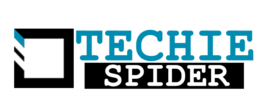Data is imperative to your business and any threat to it could be devastating. Failing to protect your data from cyberattacks, human error, system failure, theft or other threats can even cause your business to become dysfunctional if you’re not properly protected. Allowing your data to be leaked to nefarious actors can not only cause reputational damage but can result in massive fines.
With all this in mind, it’s simply imperative that you store your vital data in a reputable cloud network. Choosing the right provider can not only optimise your network safety but it can also offer a range of features that further amplify your data security:

But first, what are some of the threats to your network?
We don’t want to be alarmist, but without proper cloud storage Aussie businesses are susceptible to the following data threats:
- Loss or theft
The loss or theft of disks, hardware or storage systems can cause critical information to be leaked. This can happen in a physical robbery, where unauthorised individuals enter the data centre and remove vital hardware. Or, sensitive hardware could be stolen during transit i.e. hardware being intercepted when returning from being repaired.
But it doesn’t end there, oh no no! Backup tapes can be stolen, but you can easily encrypt them to greatly reduce the risk of compromise upon theft. What’s more, tapeless backups can use at-rest or inflight encryption. There are many avenues for onsite hardware to be compromised and this is why a reputable offsite cloud provider complete with encryption is essential for business protection!
- Bitrot or corruption
Storage systems consist of hardware that, like other technology, is susceptible to failure. What’s more, disk drives are often susceptible to bit-level errors which can easily corrupt any stored data.
Typical modern cloud systems will contain checksums for pieces of stored data and this ensures that any corruption is noticed when the data is read. Checksums exist to ensure that the data hasn’t been altered throughout transmission as this is another reason these storage systems are safer for Aussie businesses.
- Network eavesdropping
When data is duplicated across multiple systems – whether on a local network or across the Internet – it is susceptible to eavesdropping. This literally means that unauthorised parties could be “listening in” or intercepting your critical data during transmission. There are various elements of a network path including cables, routers, switches etc. that bad actors can compromise.
It can be difficult to detect such a compromise and often only comes to light when it’s too late, and that’s why it’s important to be ahead of the cybercrims by enlisting a team who understands your business safety needs and works hard to ensure they are met.
What safety features should your providers offer?
Your service provider should offer at minimum some of the following vital security features:
Data at rest encryption
The storage system will encrypt the data as it is written onto a disk. This means that if it is lost, stolen or returned to the manufacturer upon failing, there is absolutely zero chance of a data leak from this particular device.
Access control
Your provider should offer strict access control to cover all protocols. This will help ensure that only authorised parties will have access to the block devices, object buckets or file shares that administrators shared with specific users.
Key rotation
Cryptographic keys must be periodically renewed to make it near-impossible to compromise the key at question. Rotating the keys means the timeframe for using the key in the event of compromise would be incredibly short and soon render it obsolete.
So, it is absolutely pivotal to enlist an effective cloud storage provider with an eye for ensuring your business is protected from these nasty threats!






